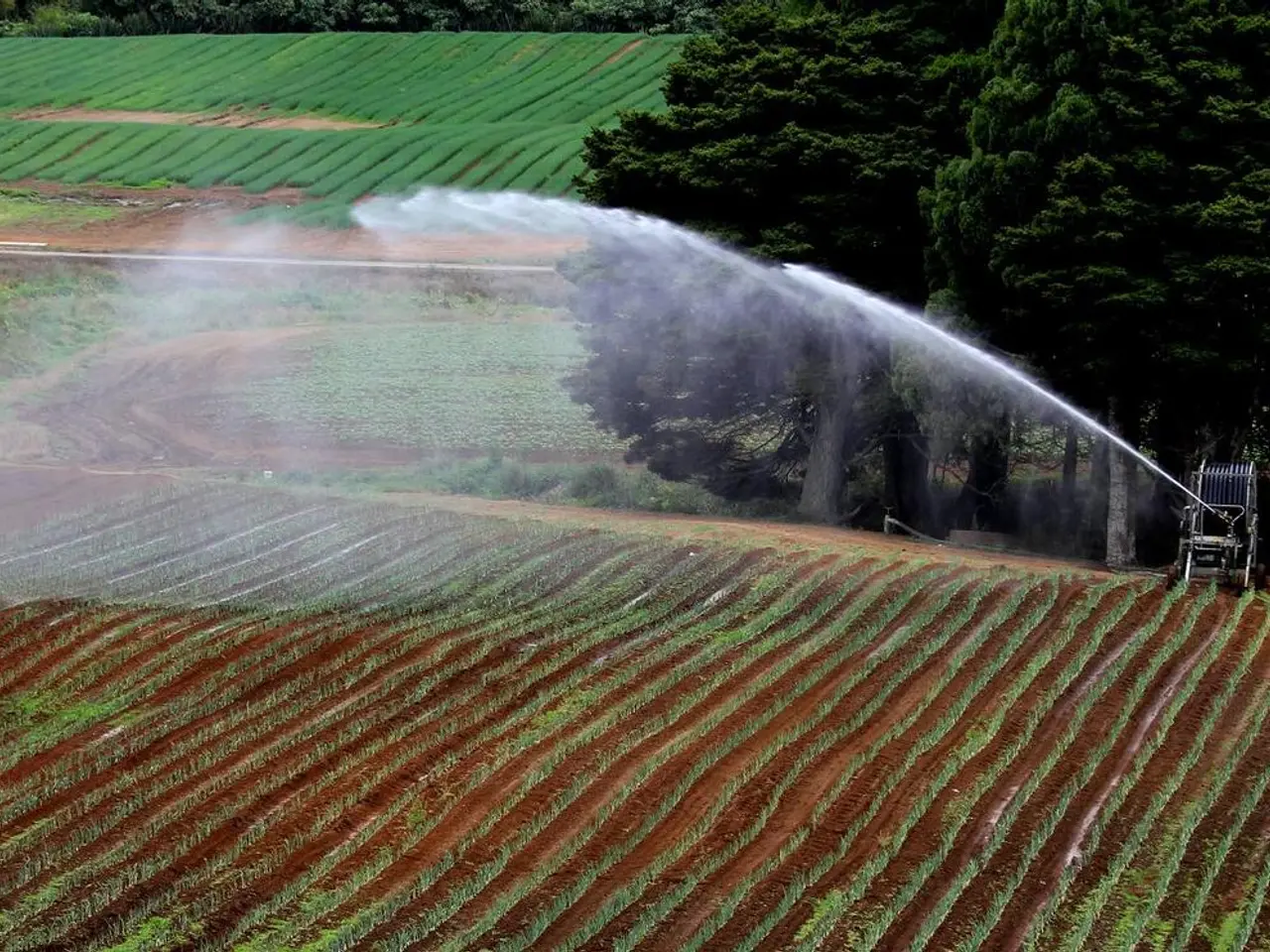Trump's Tax Cuts and Spending Legislation Potential Impacts on SNAP Beneficiaries
The proposed tax and immigration bill, known as the "One Big Beautiful Bill Act," could have a significant and detrimental effect on the Supplemental Nutrition Assistance Program (SNAP), a federally funded program that helps millions of low-income individuals, including families, senior citizens, and people with disabilities, afford food[1].
Key changes to SNAP under the bill include:
1. **Increased State Financial Responsibility:** Starting in 2028, states would be required to shoulder at least 5% of SNAP benefit costs, a change from the current 100% federal funding. This could strain state budgets, potentially leading to cuts in eligibility or benefit levels if states cannot cover these added expenses[2][3].
2. **Stricter Work Requirements:** The bill would tighten eligibility by raising the work requirement age from 54 to 64 and forcing parents with children older than 6 to meet the work requirements. Failure to meet these conditions could result in loss of assistance, which could disproportionately affect vulnerable groups who may face barriers to employment[2].
3. **Reduction in Benefits:** The amount of food aid available to recipients could be reduced, meaning fewer resources to buy food for low-income households[1][2][3].
4. **Increased Administrative Hurdles:** The legislation would increase bureaucratic red tape, making it harder for people to enroll and stay enrolled in SNAP, further threatening food security for millions[3].
Food security experts and Democratic lawmakers have expressed concerns that these changes would harm the entire food system—from farmers to consumers—because when people cannot afford food, the demand and economic flow within the food industry suffer, exacerbating hunger nationwide[1].
The James Beard Foundation, a renowned culinary organisation, and chefs like Marc Vetri have joined forces to educate the public on the potential long-term risks of the bill's SNAP cuts. They argue that SNAP is one of the most effective tools to fight hunger and that its cuts could have a devastating effect on food-insecure residents[4].
Organisations like City Harvest, a food rescue organisation in New York, have also expressed concerns. They fear that the SNAP cuts will have a devastating effect on food-insecure residents[5]. Furthermore, child nutrition programs such as school meals and Summer Electronic Benefits Transfer (Summer EBT) could potentially be affected by SNAP funding cuts[6].
In its current form, the bill would slash entitlement health programs including Medicaid and SNAP to pay for President Trump's second-term agenda[7]. Democratic governors from 23 states have urged congressional leaders to reject proposals that would put state SNAP programs at risk[8].
The Food Research & Action Center, a nonprofit and nonpartisan research and advocacy organization, has urged the House to reject President Trump's tax and immigration bill, describing its passage as "devastating" for SNAP[9].
In conclusion, the proposed tax and immigration bill could pose a serious risk by stripping food assistance from millions of Americans at a time when many are already struggling, thereby undermining a crucial safety net for the nation's most food-insecure populations[1][3].
- The proposed tax and immigration bill, known as the "One Big Beautiful Bill Act," could potentially impact the education-and-self-development of vulnerable individuals, as stricter work requirements for SNAP could lead to employment challenges, hindering their ability to advance themselves.
- The bill's changes to the Supplemental Nutrition Assistance Program (SNAP) could have far-reaching effects on the economy, as reduced food assistance could decrease consumer spending power, potentially leading to a ripple effect in various industries.
- The proposed legislation could have significant implications for general news coverage and political discussions, as the potential harm to SNAP and millions of Americans could become a central issue in upcoming elections.
- If passed, the "One Big Beautiful Bill Act" could trigger a shift in immigration policies, as increased financial responsibilities for states could lead to tighter immigration rules to manage added expenses, possibly impacting immigration trends and social diversity in several regions.




